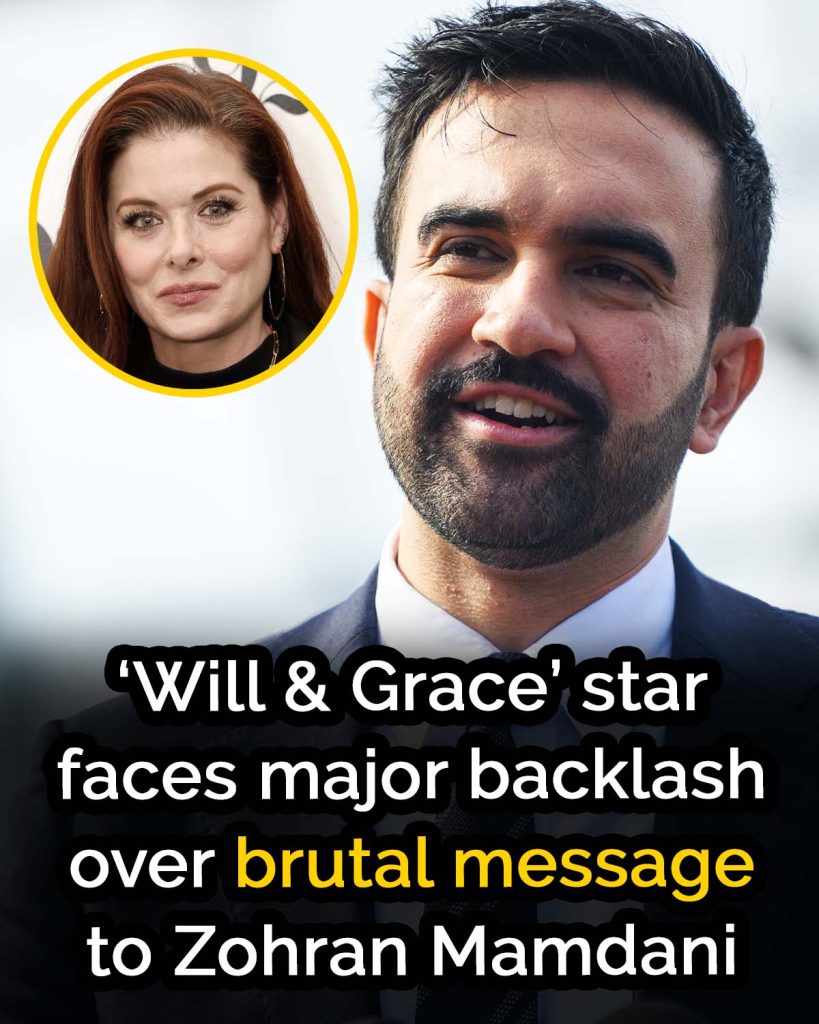Zohran Mamdani’s win in the New York City mayoral race didn’t just shift the city’s political landscape — it also sparked a wave of anger, judgment, and heated commentary, both online and off. And this time, the backlash didn’t just come from political figures or anonymous accounts. One of the loudest voices belonged to Will & Grace star Debra Messing.
When votes were counted, 34-year-old Mamdani secured just over 50% of the total, defeating independent candidate Andrew Cuomo and becoming the city’s first Muslim and South Asian mayor. Almost immediately, criticism aimed at him focused less on his policies and more on his identity. It resembled the rhetoric used when Kamala Harris became the Democratic nominee — inflammatory, identity-focused and meant to draw emotional reactions.
Messing, who grew up in Brooklyn and frequently voices strong political opinions online, had previously announced her support for Andrew Cuomo. But what drew intense backlash was a political meme she reposted — one labeling Mamdani as a “communist jihadist” and characterizing the election as a choice between democracy and extremism. The original post compared the vote to a battle for the soul of New York, and Messing amplified it to her one million followers.
The response was swift.
Many users called her comments racist and harmful, particularly given the timing — posted on the very day of the election. Words like “jihadist” carry long histories of stereotyping and fearmongering, especially toward Muslim communities, and the tone of her post struck many as crossing a line.
One user wrote that they hoped she would not work in Hollywood again. Another suggested the remarks showed a deep-rooted bias rather than a political argument. The criticism focused less on the fact that she backed a different candidate and more on the way she chose to attack Mamdani — through identity, rather than his policies.
Not everyone disagreed with her stance, though. Some commenters defended her, saying she had every right to express concern over Mamdani’s political views. They framed her reaction as justified and argued she was addressing ideological extremism, not religion.
But then Messing reposted a second message — referring to Mamdani as “Osama Bin Mamdani” — invoking one of the most painful and politically charged references in post-9/11 America. The reaction to this was even stronger. Many described that choice of words as irresponsible and inflammatory, particularly given the city’s history and the diverse communities who live within it.
Mamdani himself addressed the tone of the campaign in his victory speech. Standing before supporters, he acknowledged the labels that had been thrown at him:
“I am young, I am Muslim, I am a democratic socialist — and most damning of all, I refuse to apologize for any of this.”
There was no direct mention of Messing or any specific critic. His approach was pointed, but measured — focusing on what he represents rather than who had opposed him.
For some, this election reflected a generational shift — a younger, more diverse city beginning to shape its own leadership. For others, it symbolized loss, fear, or change happening too quickly. And in moments like this, public figures who speak impulsively can become lightning rods.
Debra Messing’s comments didn’t change the outcome of the election, but they did ignite a broader conversation — about identity, political language, and how quickly discussions can move from disagreement to dehumanization.
The reaction now unfolding online suggests that people are not only listening to what public figures say — they’re also watching how they say it, and who their words harm along the way.


